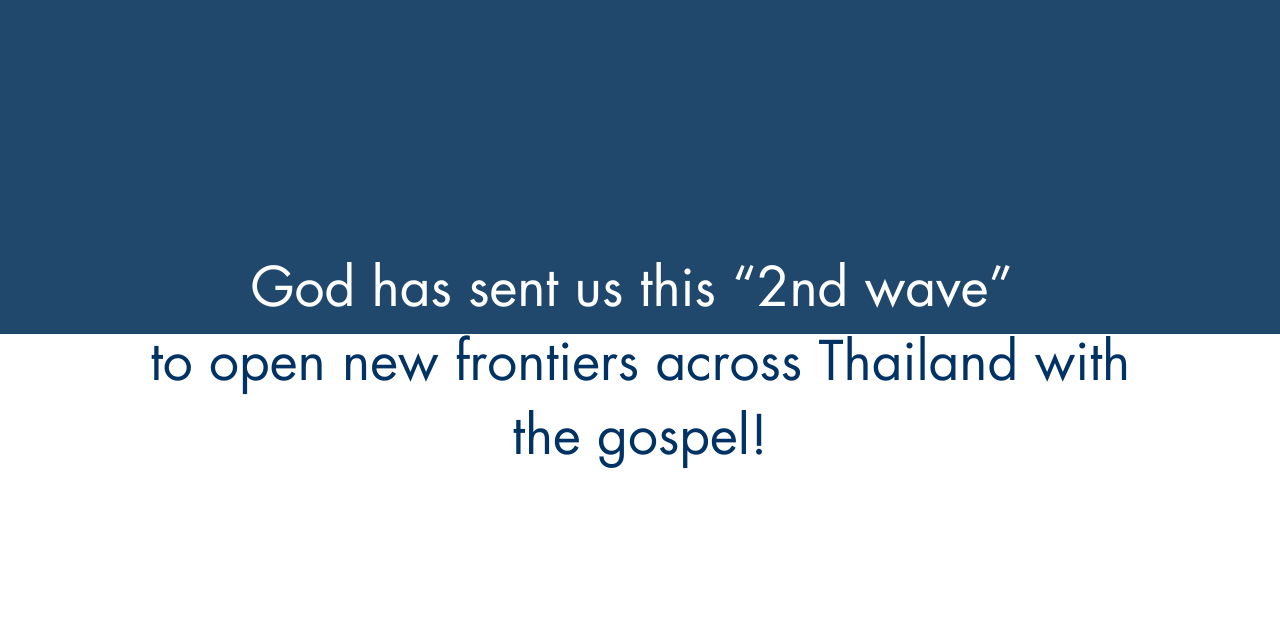
A Second Wave of Global Workers
When Lynn and I first arrived in Thailand to lead our global workers, we were a small team. In fact we had just five adults serving in church-planting. As much as we would have loved to dive in and serve as grass-root church-planters ourselves, we knew this was not our calling. Rather, at this (later) season in our lives, we understood our role was to mentor a whole new generation of global workers for Thailand.
So we began to pray. “Lord, send us young adults who will sacrifice their lives to reach the Shan and Isaan peoples who have no access to the gospel.” We also designed a short-term experience called “Adventures Among the Shan” especially geared for young adults. The trip included riding bikes through jungles and jumping off waterfalls, but most importantly, living in Shan homes in remote mountain villages.

Fast forward five years to the present. In the past two years we have had 21 new global workers arrive in Thailand for long-term ministry with us among the unreached. We call this group our “2nd wave”, and they make up two-thirds of our entire field membership! They come from Hong Kong, Canada, USA, the Philippines, Germany, and Switzerland.
Onboarding such a diverse group of international and intergenerational workers will be no easy task! But rejoice with us, that God has sent us this “2nd wave” to open new frontiers across Thailand with the gospel!
In fact, Caleb and Raquel, one of our young couples from Canada has recently completed the Thai language requirement and has been commissioned to start a church planting team in a community in northwest Thailand to reach the Shan people living there. There is another couple working nearby who has welcomed them as ministry partners.
Caleb and Raquel are currently seeking out suitable housing and a culturally appropriate platform for ministry in that location enabling them to spread the gospel effectively. They hope to be able to move there soon!
Additional Posts





